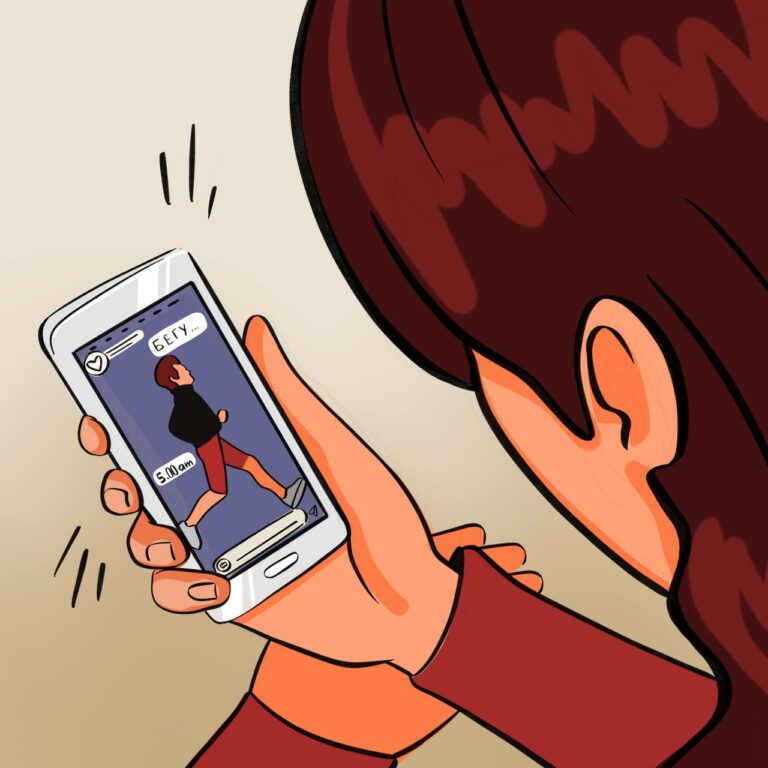Checklist on how to avoid turning into ashes
About a year ago, I had a very painful encounter with my dark side – I burned out. I was lucky, my condition was not in “ashes”, but later, having moved away from what had happened, I decided to draw up an action plan so as not to end up in such a situation. Perhaps this list will also be useful to someone. It was written for preventive purposes (I really don’t want to end up in my personal hell again), and is not able to pull you out of burnout if you are already in it.
The list is advisory in nature. You need to return to it periodically. No need to score. It’s also useful if you’re already burned out and coming to your senses.
The playlist is like this:
Checking the “meat”
If you can, drop by to see a neurologist. Let him check your blood vessels and back. Severe insomnia and stress can cause blood vessels to collapse (this can affect both brain function and the quality of vision). If it’s dead, lethargic, then this is also part of his work, he knows what to look for. Everyone has different reasons for why their brain lags.
For cardio: do an ECG. Due to the abundance of stress, some symptoms may not be recognized in the flow. Maybe it’s intercostal neuralgia, or maybe it’s something more problematic, and it’s better to pay attention to it.
Endocrinologist: an imbalance of vitamins, metal salts, or a hormone that jumps can also easily affect sleep.
Dentist: teeth cleaning every six months.
Don’t forget that timely treatment will later pay off with more than healthy sleep and less irritability. In short, the meat would be worth checking. The body is a complex thing. If doctors can get hold of something, this will already help improve your general condition, if the reason lies precisely in physical health. Side effects from problems (may be subtle) with a physical condition can easily affect behavior.
It would be nice to undergo a medical examination, of course, and not just the points above.
Check your mental health
If you are absolutely sure that the problem is not “meat,” then you can contact a psychologist. It is difficult to say what set of contradictions a person has in his head, especially if he has not slept for a long time. This is difficult to do even with a well-rested head. And yes, the unraveling will not be quick. It's different for everyone. Maybe something can be fixed in a couple of days/weeks (if on the surface), or it may be that the root turns out to be very old and complex. Then you will have to try to fix it, and it will take n months. The lifestyle itself will not change if you do not change it.
Well, what about without apps for prevention. Mind Tracker (Android, iOS) is good for tracking your emotional state. Fill it out a couple of times a day while you’re driving (stumbling/waiting in line) to monitor how you feel in the moment. The application can build graphs based on the completed data. This will help you understand why you are angry or kind, what was the reason why you don’t want to sit down to work again or don’t want to sleep. If you fill it out every day, then after a month or two, you will be able to understand more clearly when you need to go on vacation or go somewhere for a couple of days.
Dream
If you haven’t slept properly for half a year, then make decisions taking into account the fact that you’re sick to death (yes, sleeping irregularly for six months is very bad, don’t consider it the norm). Better yet, don’t make big decisions at all in this state. And their quality will not be the best. It's better to wait and come to your senses. You can do small things if it’s not difficult to do. It will captivate the brain, although not much, but in this state it is advisable not to experience any special triumph.
And we try not to “sabotage” sleep: it’s better not to do anything cognitively complex a couple of hours before bed (and not to stare at the monitor). In two hours – that’s exactly right. The brain needs to “cool down”.
If you have already “neglected” the situation with sleep, then there is no one simple solution on how to fix it. There will be some kind of complex solution, probably no one will say what it consists of. See a doctor, it will be safer.
Look for a fitness bracelet with sleep tracking. Even the simplest ones will help you track your sleep schedule. By tracking your sleep/wake schedule every day, you are more likely to begin to strictly monitor it. It’s stupid because it will be in front of your eyes. (For example, if during tracking I slept less than 7 hours a day, then I try to forget about getting up in order to get some sleep, because it is very difficult to work when the state is like “on a swing”).
By the way, is it possible to temporarily shift the upper limit of sleep? Do you have to wake up at nine? Try sleeping until noon, at least sometimes. This way you will give your body a break and be filled with strength. A well-rested brain (although it does not coincide with the normal sleep/wake window) makes it easier to make decisions.
According to habits
What you can do right now:
Drink more water. Your nervous system will only be happy, it’s useful for it;
Take vitamins (not pills, but fruits/vegetables/liver/etc);
Walk/walk (8,000 thousand steps or ±6 km is quite a manageable figure per day) and be outdoors more often. Not only in computers, but also in your brain there are background processes. Let yourself think more often, and your decisions will be of better quality;
Try to do things in portions so as not to provoke an overload. Otherwise you’ll get caught up in the flow and won’t get out in time. It’s better to do small-engine work or cleaning. Puzzles may also be included;
Try to communicate more often, it’s good for switching your brain, although not for long;
It would be nice to write out a to-do list in a notepad. This also helps a lot to free your head from current thoughts. It’s best to think on paper, because while you’re writing, you’ll think in the background: “What for is all this?!”
Try not to read information bubblegum (aka doomscrolling), but if you do, set aside time for it (for example, half an hour after lunch) and a place so that it does not clog your brain in everyday life;
Sport. And not just “I’ll start running on Monday,” but really start running, but only my norm. There is no need to run 3 km a day. Run 500 meters, let this be your comfortable norm, but be sure to run. It is important that this becomes a habit. It only takes 15 minutes a day + shower time. The world will not turn upside down in 15 minutes. But through systematic practice, a habit will develop. The main thing here is to go out every day. If you’re tired, then run 200 meters; the very fact of going out is important. And whenever you miss a day of training, remember that you are setting yourself back two days. From the point of view of muscle mass, this may not have a special role (we all don’t have to be Olympic champions), but for consolidating the habit it is mega important;
Keep a sign with the types of holidays you like. It will help a lot in difficult situations. The thought of what you like and with what people can help you calm down, and maybe get out of a crisis;
A list of everything that has ever driven you. If you are completely lost, it will help. Well, or one fine morning you will wake up as a street artist in the Netherlands and complete it.
Hobby. A useful thing, both as an outlet (I really hope that this is so, and not a kind of work), and as another source of fantasy and satisfaction. This is a personal activity that helps not to fall apart from everyday life. This is also a very good way to be able to want. It seems that we are all beginning to gradually forget what it means to do what we like (and that this “like” is not connected with our main activity). If everything is really bad with this point, you can start your search here: Pinterest.
In general, sometimes go through this list if your condition is not very good. In the hustle and bustle of everyday affairs, it is very easy to forget about such things that can help in most cases (of course, if something is not very serious).
Put things in order
Descartes square. A table drawn up for several conflicting plans can help you choose exactly what is relevant and at the moment (just do about four in a notebook, for several potential cases/directions). The advantage will be that you can freeze the progress of not very important plans;
If the Descartes square is complex and long, then you can make a table of pros and cons for each planned square. It will also help to weed out the excess (at least temporarily, so that the skull does not take up space), and it fills up faster;
“I want, I can, I need” You can conduct an audit of where you are heading every month;
Method 5 “why” – in relation to a certain problem, it can help to give up unnecessary things.
You can also use a bullet journal (a very addictive thing. Be careful!)
In general, a great variety of goal-setting methods and goal-setting frameworks have now been produced. It is important to try, apply and discard the old ones if you somehow managed to grow out of them.
Conclusion
All of the above are just tools. They need to be used systematically, and this also requires patience to keep track of everything and fill it out. I admit that these tools may not be enough for you or you may have a different approach to everyday life. But you have to try. And when you don’t know why you don’t sleep, you need to try different approaches. In general, at least something, but it is necessary.
Dokinu good app Wellness Wheel (Android, iOS), which helps you track where you are strategically (in complex, across several areas of life). Fill it out once every couple of weeks and you will understand the dynamics. The technique is called “balance wheel” Writing it down on paper was inconvenient and did not become a habit. But the application started. You must fill it out carefully, setting aside 5 minutes of silence for this, with an awareness of what values you are entering. After a couple of months of regular filling, the dynamics of where you are moving will be visible.
The place where you live can also easily influence the current state. That is, if everything is in one room, then it is very difficult to separate study/work/life. Everything gets mixed up, it’s difficult to keep a daily routine (by the way, write it down for yourself, right on a piece of paper), but that’s another story.
In short, there is no silver bullet, you have to try a little. Inspection of the body and decluttering of the head should be carried out more often, otherwise insomnia (or something more dangerous) will be taken for granted. Or maybe chronic. Chronic insomnia makes it more difficult to function. Remember, if you lack sleep during the day, you can be ineffective in a very wide range: from 20% to 80%, as you sleep. And keep in mind that you may not get enough sleep every day, which means that every day you lose a lot of things. Just think about how many hours a month go to waste!?
Just a good channel with cats to cheer you up JU.
Don't beat yourself up!





